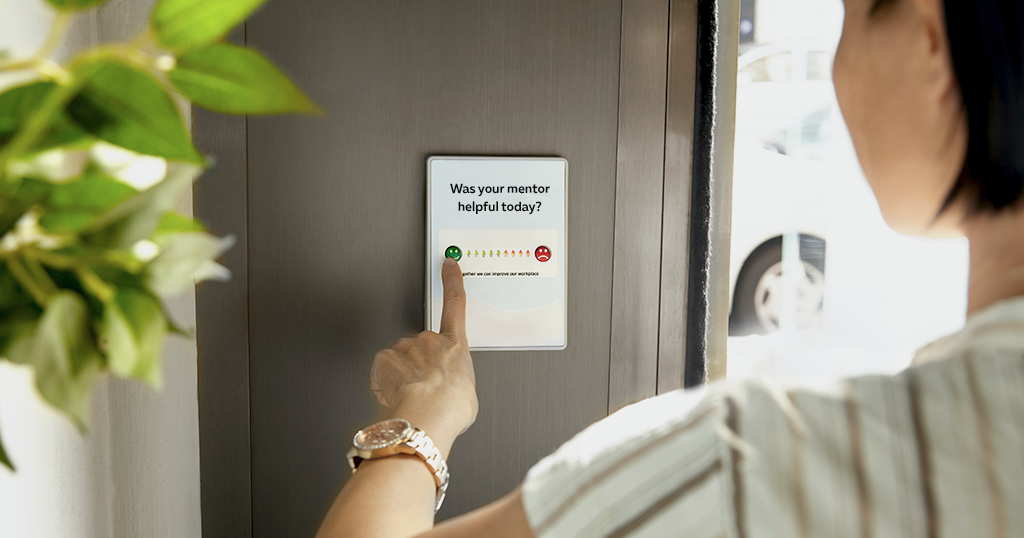Mentoring is a two-way value exchange. The mentee gains benefit through the experience and knowledge the mentor shares. The mentor gets benefit by developing their skills as a leader and guide, as well as many other benefits, which you can read more about here:
The benefits of being an OneUpOneDown mentor
Providing feedback to the mentor is one way a mentee can enhance the learning experience. This will also help to strengthen your relationship with your mentor and help them to help you.
In this blog post, we share some specific actions you can take to provide your mentor with feedback. If you’d like to learn more about how to embody giving and receiving feedback into your Way of Being, please read our blog Learning to give and receive honest feedback.
- Communicate your intentions regarding feedback
When you have your first session, let your mentor know that you want to incorporate mutual feedback into the relationship. You might also want to let them know what specific feedback you’re looking for. Consider inviting your mentor to let you know what feedback they’d like to receive themselves. For the mentor, knowing if the support they are providing is valuable is very important. It can be hard to tell without feedback. For the mentor, they are sharing information they already know, which might not seem like a lot, but for you, the mentee, it’s hopefully very valuable. Or, if it’s not, sharing what would be helpful will guide your mentor to better understand how they can meet your needs.
- Create questions to guide how you ask for and give feedback
Here are some questions you can consider yourself, to help provide meaningful feedback to your mentor:
- How was the guidance they provided you helped since your last meeting?
- What actions have you taken as a result?
- Was there anything that you did or didn’t do following your last session that might be useful to raise with your mentor? For example, did you discuss an action but decide not to take it and if not, why not?
- Is there anything your mentor can incorporate into your sessions to help guide an outcome you are wanting for yourself?
- How do you feel about the communication that occurs between you and your mentor? Is it effective?
Here are some questions you can ask your mentor, to receive feedback that will help you as a mentee:
- Is there anything I can do to improve myself as a mentee, so I get the most out of time together?
- Are there any observations that you have had that might be useful for me to grow as a person?
- Share your learnings and realizations
Sharing the gains you have realized through the relationship with your mentor will help them to realize the impact they are having. You can do this at the end of each session, or the beginning of the following session. You could also let your mentor know about your progress in between sessions over email, or whichever form of communication you are using. These touchpoints will help to build your relationship and create an amicable environment for offering feedback.
- Address concerns early
If you feel like you are not gelling, and you are not excited about the prospect of working together over the three-month match period, it’s okay to be upfront about this and discuss it with your mentor. Chances are, they also probably realize that it’s not a good fit. This can also apply if you are not able to make your schedules work together, which can happen. In this instance, be open about your circumstances and agree on what the best way forward is.
You can also reach out to us at [email protected] and we can manage this process for you if you’re unsure what to do yourself. We’ll let your mentor know and arrange for you both to be rematched.
Conclusion
Don’t be afraid to offer feedback to your mentor. It is a valuable way for them to learn, and to understand the impact they are having. The most important thing is to be open and honest with communication. Ask for what you want, and ask questions to understand the wants and needs of your mentor, so you can also support their learning journey. Mentoring is a two-way value exchange and there is a lot you can do as a mentee to add value to your mentor’s development.
Follow OneUpOneDown on Facebook, LinkedIn, Twitter and Instagram to stay tuned with the latest news.
